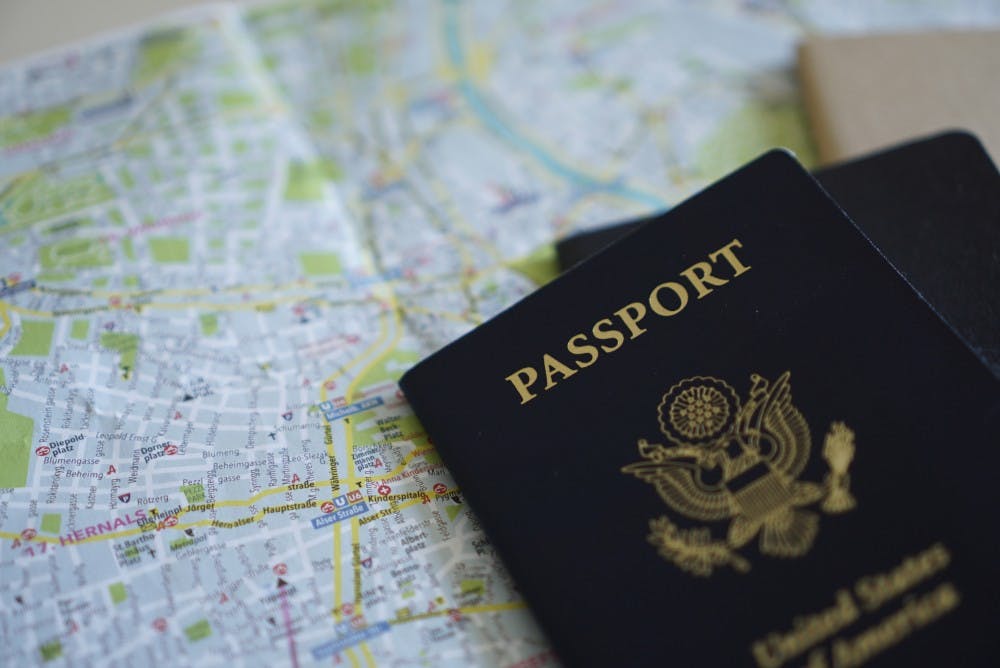Just a few days after finals had ended in May, while most other students were starting summer internships or research, Samantha Wapner received an email.
“In the process of reviewing academic standing for the College after Spring 2015 grades, it came to our attention that you no longer qualify to study abroad,” it read. According to the College’s study abroad requirements, no student receiving a failing or an incomplete grade on his or her transcript from the semester prior to going abroad is eligible to study abroad.
A mental health concern
Wapner, who would be a College junior this year, had planned to spend her fall semester studying at King’s College London. As an English major who was heavily involved in the theater community while at Penn, the program’s dual focus on both literature and theater seemed perfect for her.
While the program is a Penn-sponsored study abroad program, Wapner said that she had to apply directly to King’s College as an exchange student, a process she remembers was complicated.
Despite the complex application process, Wapner still felt that the program was her best option, even choosing it over a French language immersion program, which she would have been eligible for after studying French for several years.
It seemed as though everything was in order.
But Wapner had struggled with mental health issues since arriving at Penn. By the spring of her sophomore year, her mental health had begun to take a toll on her grades. Wapner said that even after speaking to her professors and seeking help at Counseling and Psychological Services and with a private psychologist, it became obvious to her midway through the spring that her grades could interfere with her plans to go to London.
“I had a bad last semester, so even though I had picked classes and registered with the program, I knew I still might not be able to go,” Wapner said.
When the email came after her final grades had been posted, Wapner said she wasn’t surprised.
But once she knew that she wouldn’t study abroad, she described the process of withdrawing her participation as “confusing” and “unclear.”
On Penn Abroad’s website, the only policies listed in relation to withdrawing from a study abroad program after being accepted detail the refunds students will be eligible for when withdrawing after paying tuition.
After receiving the official notice that she was ineligible to study abroad, Wapner decided to take a leave of absence for the year. From notifying King’s College of her canceled participation to applying for the leave itself, Wapner said she felt that the administration kept her in the dark.
“Once I got that first email, it really wasn’t clear to me at all whether there was anything I needed to do. Nobody told me whether I was supposed to reach out to KCL or whether Penn would do that for me,” she said. She also added that she had just gotten official notice from King’s College in September that she was no longer registered to be a student.
After receiving the original email, Wapner said that she almost immediately heard from her advisor Rebecca Poyourow who brought up the idea of taking a leave of absence — an idea Poyourow had brought up when she first learned of Wapner’s mental health struggles, even though at the time Wapner was still eligible to study abroad.
Penn Abroad, which is responsible for dealing with students withdrawing participation in study abroad programs, said that each situation is handled on a case-by-case basis. “There are a number of reasons why a student might decide to withdraw from a study abroad program, and the process will vary depending on the timing and nature of the request. In every instance, we always work with the student and their undergraduate school to facilitate the process,” Penn Abroad Associate Director Danielle Scugoza wrote in an email.
Wapner, however, felt like her situation was handled with a “blanket solution” by the administration. “I was very much pushed into a year-long leave just because it felt like that was the easiest thing for the administration to deal with,” Wapner said.
In addition to students withdrawing from specific programs, Scugoza added that there are some instances that could cause Penn Abroad to cancel a program altogether, including natural disasters, civil unrest, public health outbreaks, militancy or conflict. “In the event an international incident affects the Penn community, the Global Incident Management Team convenes to coordinate a university-wide response and provide immediate assistance to travelers that are directly impacted,” Scugoza wrote. She added that students wishing to travel on a Penn-related program to a country listed as a “Risk Region” must gain approval from Penn before going.
For Wapner, though, it is not Penn’s commitment to ensuring its students’ safety that she questions, but rather the way it handles the logistics of achieving that end. “The entire process was just not very clearly laid out for me, and it actually became very frustrating,” she said.
“For someone who is already struggling with mental health, I really felt like I just didn’t get the support I needed from the administration at Penn. I feel like they should have done more,” she said.









